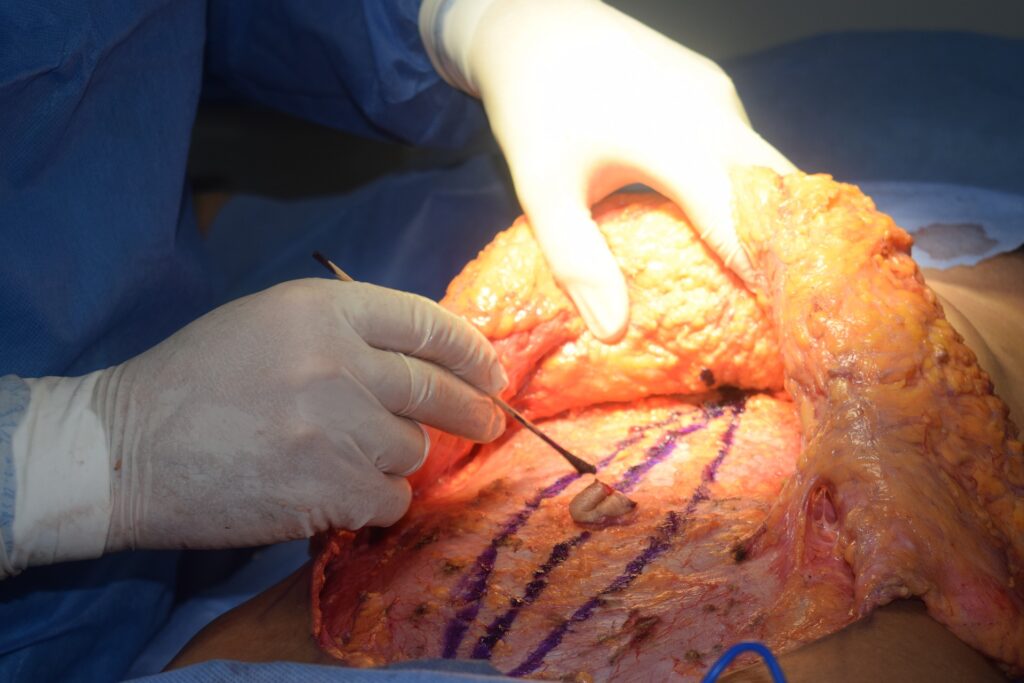Plastic surgery is one of the most common procedures in the U.S. As more and more people choose to go under the knife to improve their appearance, questions about Medicare coverage have naturally come about. You have to know that Medicare will not cover plastic surgery when done cosmetically, such as when patients want to remove any traces of stretch marks. However, if the procedure is medically necessary, Part B would pay 80% of the cost once you satisfy the deductible.
Understanding Plastic Surgery
Plastic surgery has been under fire in recent years, as some people would call it a vague area of medical treatment. Why? The main reason is that plastic surgery has often been associated with cosmetic surgery. By definition, cosmetic surgery is mainly done to improve an individual’s physical appearance, whereas plastic surgery is to offer reconstructive improvement of an area that has been damaged to restore its normal function and appearance.
While the two practices are different, they can overlap. For this reason, Medicare would only cover procedures that have medical causes. Here are the instances when Medicare would cover plastic surgeries:
Reconstruction After a Mastectomy
If you had a full mastectomy as part of breast cancer treatment, a breast reconstruction would be covered under Medicare Part A and Part B. If the breast implants are done as an inpatient procedure, Medicare Part A can help with costs. For outpatient procedures, Medicare Part B can shoulder as much as 80% of the total cost.
Since Medicare won’t cover the entire cost, you’d still have to shell out some money out of pocket. In this situation, getting Medicare Supplement insurance from providers like Mutual of Omaha can help ease the financial burden and let you focus on healing.
Medically Necessary Breast Reduction
Medicare can cover the costs if you are going to have a breast reduction due to medical issues. For example, you are at an advanced age and suffer from neck and back pains due to large breasts. You can have a breast reduction procedure to improve your posture and breathing. Note that to qualify, you have to have the symptoms for at least six months and have tried non-surgical options.
Plastic Surgery After Accidental Injury
If the area you will have surgery on has a defect that resulted from an accidental injury, the costs can be covered by Medicare Parts A and B. For example, you were involved in an accident, and you damaged your nose, which affects your breathing. You can have rhinoplasty to restore the normal function of your nose. Note that Medicare would only cover this if there are functional issues that need to be addressed.
Gastric Bypass Surgery
Some opt to undergo gastric bypass surgery as an alternative for liposuction surgery because they have better chances at Medicare covering the costs. If the surgeon can provide a medically sound reason for a tummy tuck or abdominoplasty, Medicare can cover expenses.
Skin Removal Surgery After Weight Loss
If you’ve lost a considerable amount of weight, you’re likely to deal with extra skin. Medicare covers the costs provided that you:
- Have had a stable weight six months prior to the procedure;
- Suffer from skin conditions secondary to the excess skin;
- Have issues with mobility due to the excess skin;
- Can drop BMI by at least 5 points.
However, you should be prepared to pay first for the surgery and get reimbursement after. If your excess skin has been troubling you and affects your daily living, consult your doctor so you would know the best options available for you.
Blepharoplasty
As people age, the upper eyelid can droop and affect vision. It can also happen due to a swollen cornea or loss of elasticity of the skin. When you want this surgery, you have to ask your doctor to provide evidence that your vision is affected. They have to take pre-operation pictures and a field test report that shows the presence of 30-degree blocking.
Medicare has a pretty good reason for not covering procedures that do not constitute a medical necessity. However, plastic surgery procedures can sometimes overlap with cosmetic surgery. Doctors need to provide their patients with available options before subjecting their patients to procedures that do not have medical reasons. While some necessary plastic surgeries have partial coverage only, they are already a big help.
Patients can augment their insurance by getting Medicare Supplement insurance to help them cover the remaining costs. They have to compare the charges and inclusions so that it matches their current medical needs.

